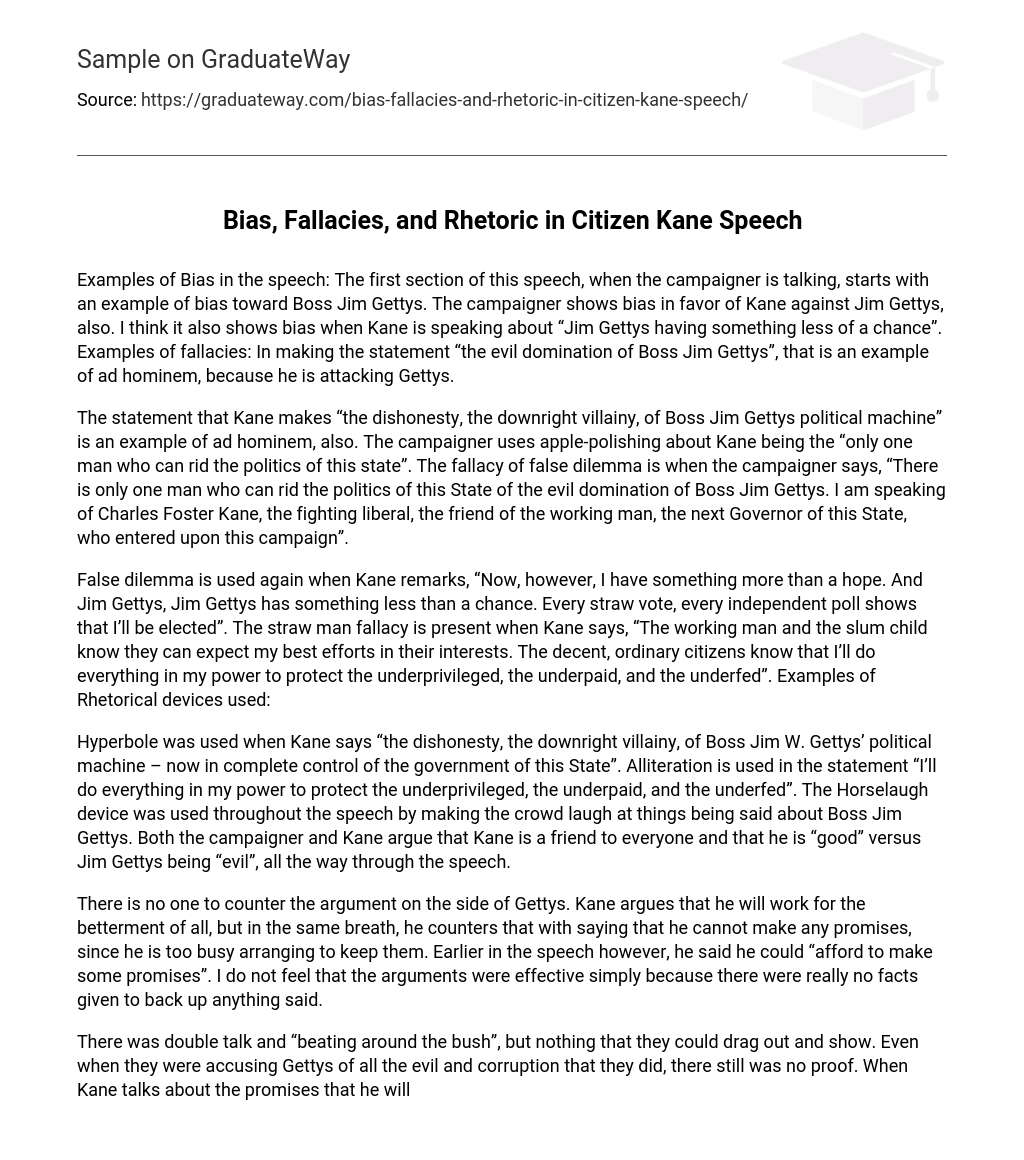Examples of Bias in the speech: The first section of this speech, when the campaigner is talking, starts with an example of bias toward Boss Jim Gettys. The campaigner shows bias in favor of Kane against Jim Gettys, also. I think it also shows bias when Kane is speaking about “Jim Gettys having something less of a chance”. Examples of fallacies: In making the statement “the evil domination of Boss Jim Gettys”, that is an example of ad hominem, because he is attacking Gettys.
The statement that Kane makes “the dishonesty, the downright villainy, of Boss Jim Gettys political machine” is an example of ad hominem, also. The campaigner uses apple-polishing about Kane being the “only one man who can rid the politics of this state”. The fallacy of false dilemma is when the campaigner says, “There is only one man who can rid the politics of this State of the evil domination of Boss Jim Gettys. I am speaking of Charles Foster Kane, the fighting liberal, the friend of the working man, the next Governor of this State, who entered upon this campaign”.
False dilemma is used again when Kane remarks, “Now, however, I have something more than a hope. And Jim Gettys, Jim Gettys has something less than a chance. Every straw vote, every independent poll shows that I’ll be elected”. The straw man fallacy is present when Kane says, “The working man and the slum child know they can expect my best efforts in their interests. The decent, ordinary citizens know that I’ll do everything in my power to protect the underprivileged, the underpaid, and the underfed”. Examples of Rhetorical devices used:
Hyperbole was used when Kane says “the dishonesty, the downright villainy, of Boss Jim W. Gettys’ political machine – now in complete control of the government of this State”. Alliteration is used in the statement “I’ll do everything in my power to protect the underprivileged, the underpaid, and the underfed”. The Horselaugh device was used throughout the speech by making the crowd laugh at things being said about Boss Jim Gettys. Both the campaigner and Kane argue that Kane is a friend to everyone and that he is “good” versus Jim Gettys being “evil”, all the way through the speech.
There is no one to counter the argument on the side of Gettys. Kane argues that he will work for the betterment of all, but in the same breath, he counters that with saying that he cannot make any promises, since he is too busy arranging to keep them. Earlier in the speech however, he said he could “afford to make some promises”. I do not feel that the arguments were effective simply because there were really no facts given to back up anything said.
There was double talk and “beating around the bush”, but nothing that they could drag out and show. Even when they were accusing Gettys of all the evil and corruption that they did, there still was no proof. When Kane talks about the promises that he will keep, he never says what those promises are. In fact, he says that he can make no promises. That is an example of the double talk that I mentioned. If he had said exactly what it was he is promising, and what he would do to keep those promises, he would have been more effective.





